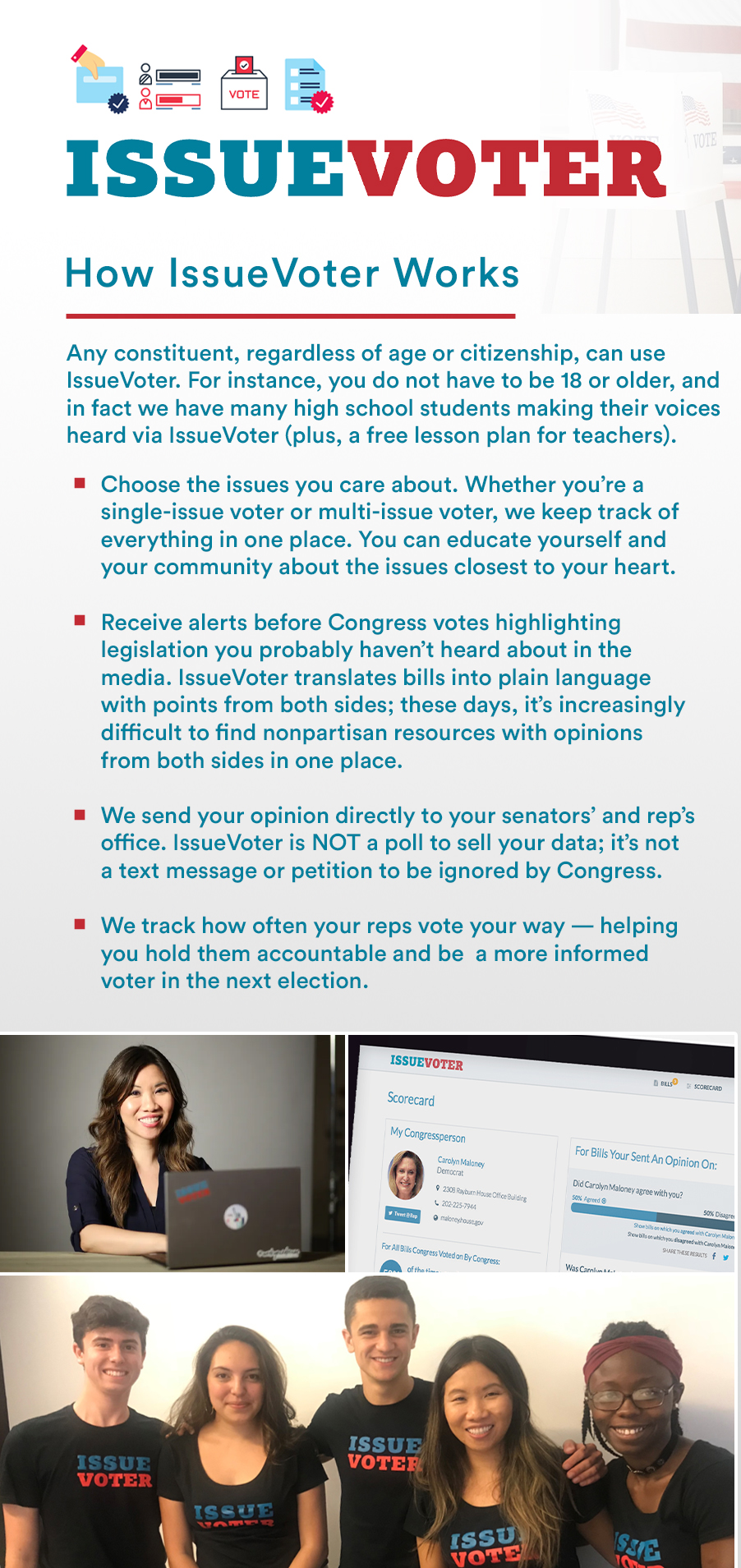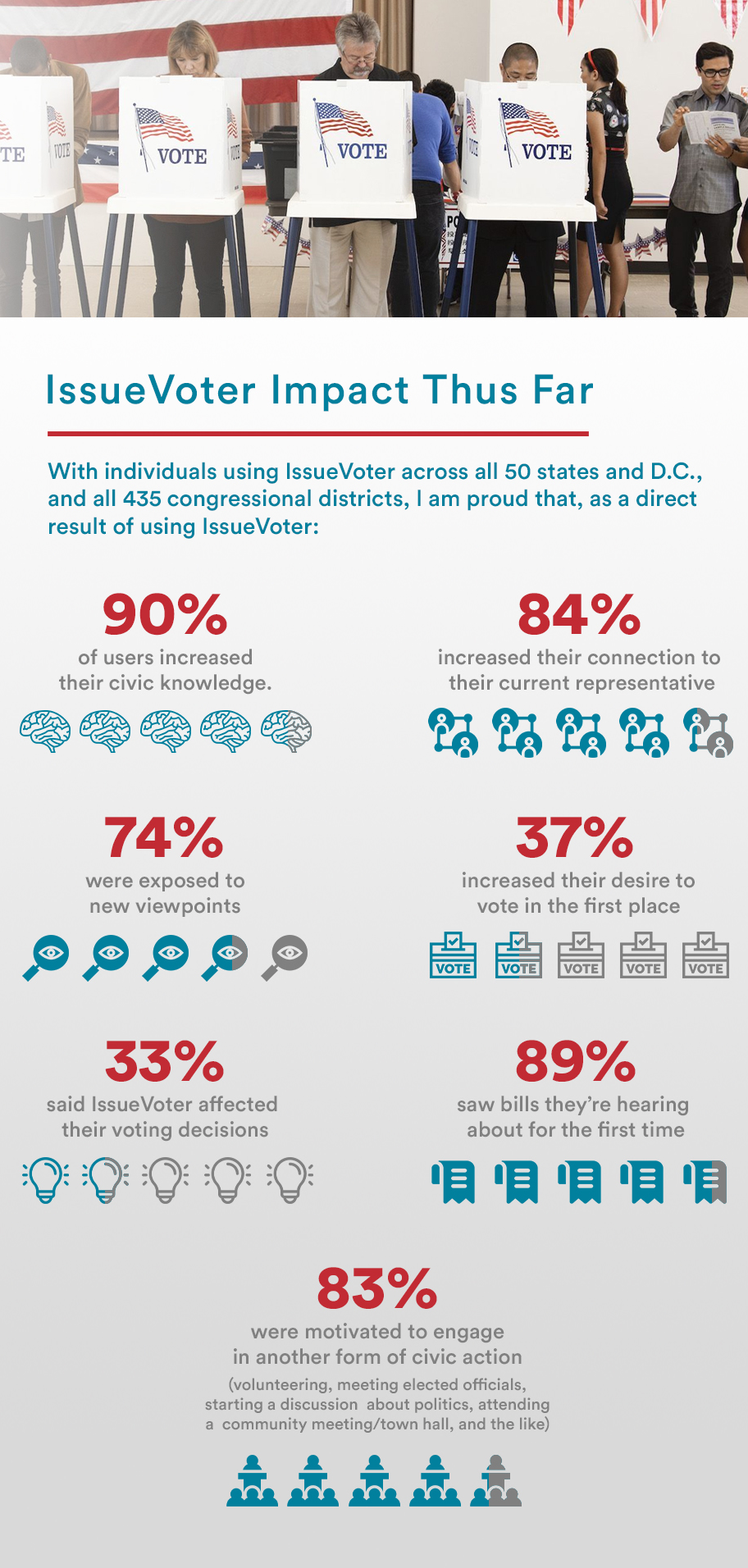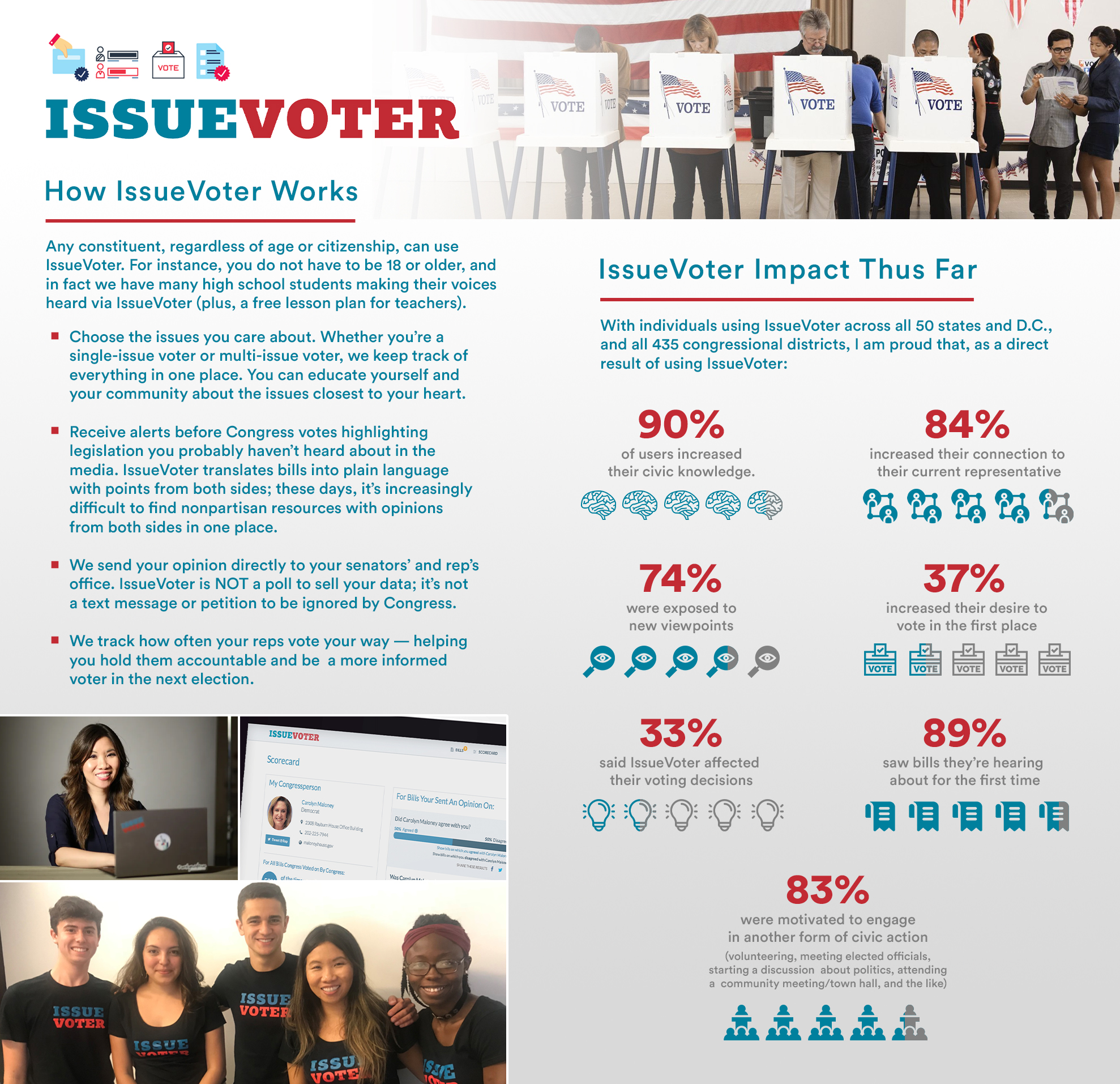PIT In Practice Profiles
In this Q&A series, PIT-UN talks to various technologists and practitioners who are helping define the field to learn about their PIT journey and outlook, in their words.
Featured Practitioner
Maria Yuan, Founder of IssueVoter

Q. What led you to be a PIT entrepreneur today?
Maria Yuan: I grew up in the United States with parents who always voted. My dad’s family fled communist China, and even at a young age, I recognized that the right to vote wasn’t universal. I learned the value of civic duty — up close — at a young age. In second grade, our teacher did a simple activity in class (mock voting) that has stayed with me to this day. And I experienced democracy and the act of civic participation at 7 years old. I felt powerful, included — and it was fun.
If you had asked a 7-year-old me, “Is voting required?” I probably would have answered, “Yes.” I certainly thought my experience was universal. Only later, around high school, did I learn that only about 50% of eligible voters voted. And that it wasn’t until 1952 when Asian immigrants could become U.S. citizens and [get] the right to vote.
Q. Given that experience growing up, did you go on to study political science?
MY: Because I created IssueVoter, I’m often asked whether I studied political science in college. Nope! I majored in finance, worked in finance, and attended business school (Wharton). Pretty traditional on the surface. I chose my major by process of elimination and did feel like I had the interest in (or luxury of) pursuing a liberal arts degree.
Q. How does IssueVoter fit into the field of public interest technology?
MY: Just as I have many identities as an individual that can put me in a box, IssueVoter has many homes as an organization — public interest technology, startups, social impact, nonprofits, nonpartisan resources, student resources, and knowledge communities —coexisting and being all of these at once.
Perhaps then, it's BIPOC who are so used to (forced) existing in vastly different spaces
who most naturally are the ones creating organizations that span the field.
Q. How did you go from finance to creating a civic tech nonprofit?
MY: It started in Iowa. Inspired by my parents and college experiences (working with fellow students to pass a state law and interning for a rep), I took a leave of absence from working in finance and went to manage a campaign in Iowa.
Voters had a simple, key question: “Is my rep actually representing me?” It was so frustrating that there was frankly no easy way to know what happens between elections: when the real work that affects our lives gets done.
Iowa taught me many things, including:
- I did not necessarily want to work in partisan politics. Like most of us, I didn’t agree with either major party 100% of the time.
- Politics and campaigns completely overshadow what’s important: policy.



Q. What is the “Better Future” that you imagine?
MY: One where our democracy truly represents the people. Where we know who represents us. Where we are each informed year-round about the policy that affects our lives. And where we can easily make our voices heard in the most impactful way.
Through IssueVoter, my vision is that together, we can create the world we want to live in through truly representative democracy.
Q. Why hasn’t this happened yet?
MY: Well, democracy requires our participation, but it’s hard to be engaged.
Did you know over 15,000 bills are introduced in each session of Congress? Approximately 1,000 are voted on. How many have you heard about? One? Five?
Every constituent contact is tracked, and reports are delivered regularly to members of Congress by their staff that summarize what their district cares about. Channels to contact Congress still involve outdated forms of communication.
Only the most well-organized and well-funded voices are being heard.
Q. What can we do about this challenge?
MY: That’s why I founded IssueVoter — a nonpartisan online platform and free public service. A PIT before I knew what PIT was. Our mission is to give everyone a voice in our democracy by making civic engagement accessible, efficient, and impactful.
I did not want to live in a world where engagement beyond elections on policy and knowing whether we’re being represented didn’t exist. So I created it.
Q. How do we create belonging?
MY: Now, as part of our mission to give everyone a voice, IssueVoter partners with organizations to reach the hard-to-reach, for example, a newsletter that is sent to over 400 prisons across the U.S., giving those incarcerated access to making their voices and their families’ voices heard, without needing any internet connection.
Our free lesson plan is used in high schools, and remember, IssueVoter is for all constituents, regardless of age or citizenship, not only those who are eligible to vote.
Would reaching the hard-to-reach be top-of-mind for all Founders? I’m not sure, but studies do show that it automatically makes teams more diverse.
PIT-KN: Elevating the Stories and Knowledge
from Underrepresented Lived Experiences
learned can provide context for the issues that the PIT community is addressing.

